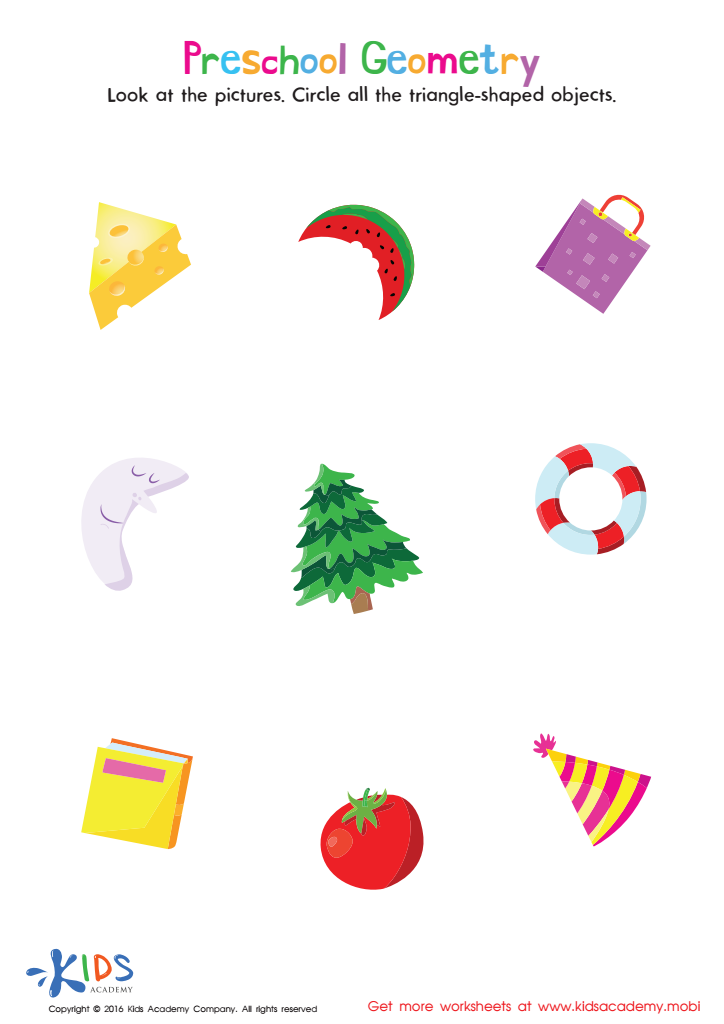Basic geometry understanding Kindergarten Math Worksheets
6 filtered results
-
From - To
Unlock your child's potential with our Basic Geometry Understanding Kindergarten Math Worksheets! Designed for young learners, these engaging resources introduce essential geometric concepts such as shapes, patterns, and spatial awareness. Our worksheets encourage hands-on learning, helping children recognize and categorize shapes like circles, triangles, and squares through fun activities. Ideal for home or classroom use, these materials support early math skills in a playful way, enhancing cognitive development and critical thinking. Foster a love for math while building a strong foundation in geometry. Explore our vibrant and interactive worksheets to inspire creativity and curiosity in your little ones today!
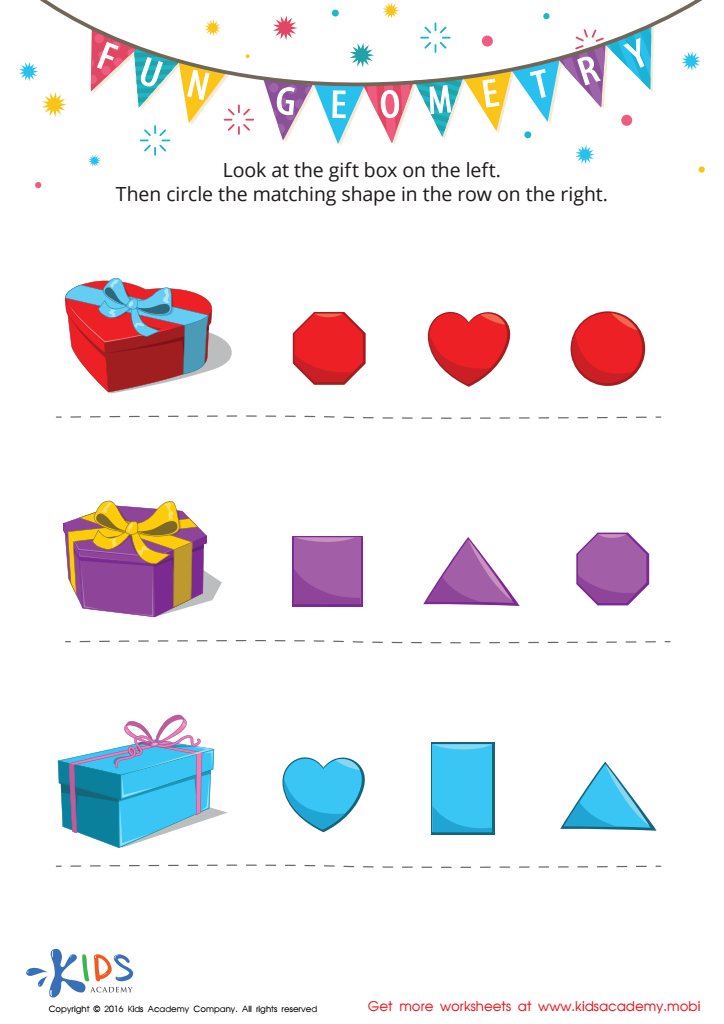

Fun Geometry Worksheet
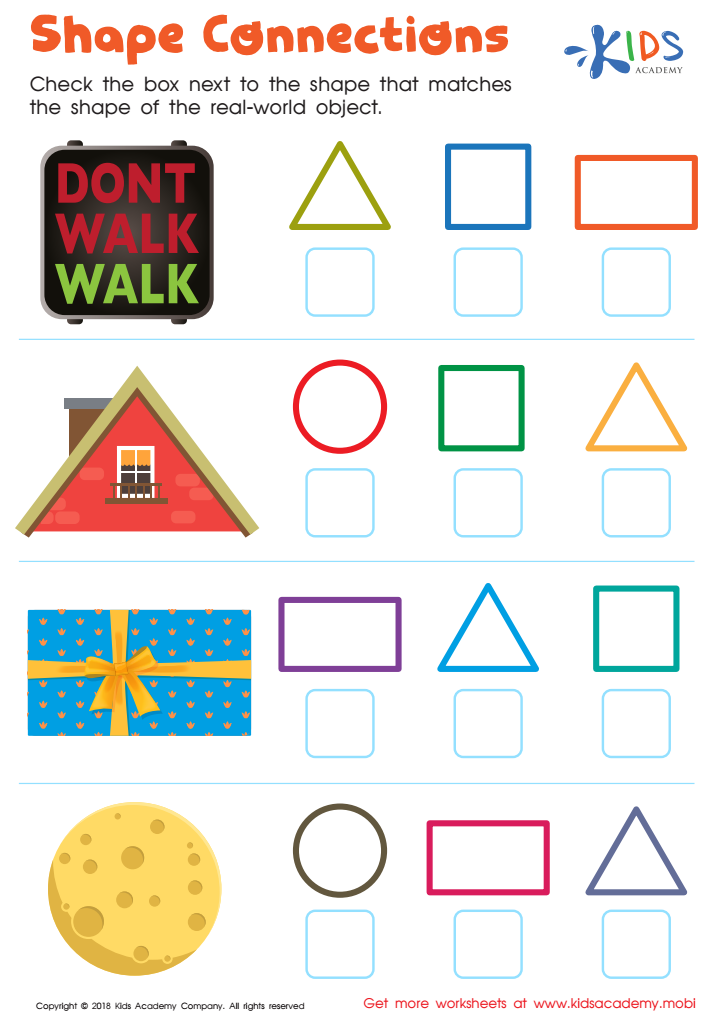

Shape Connections Worksheet
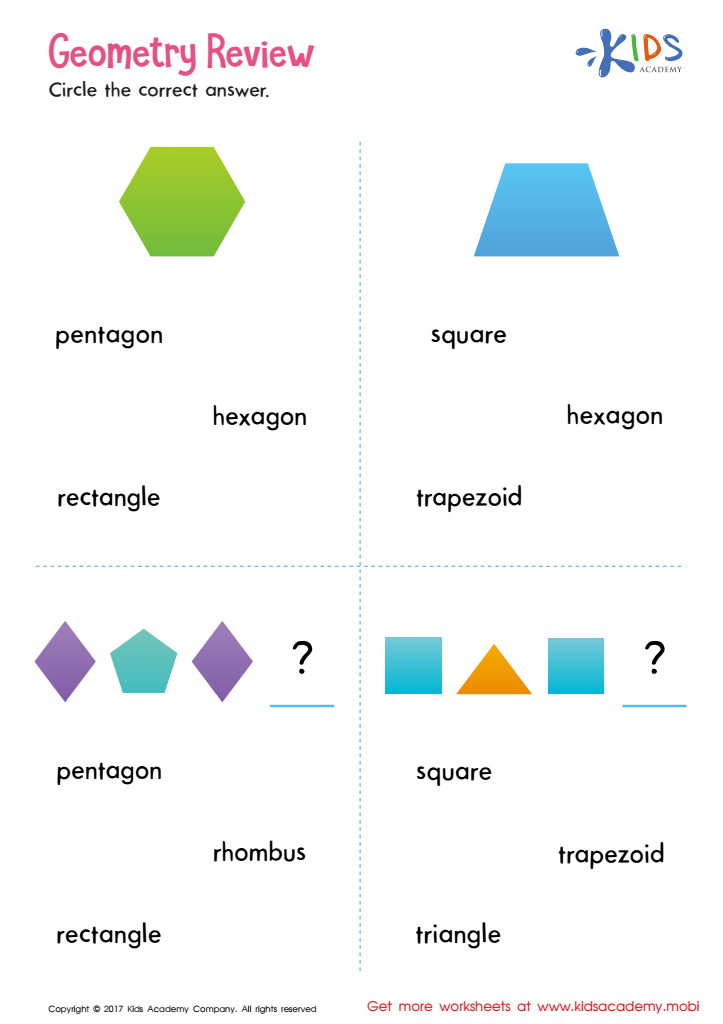

Geometry Review Printable
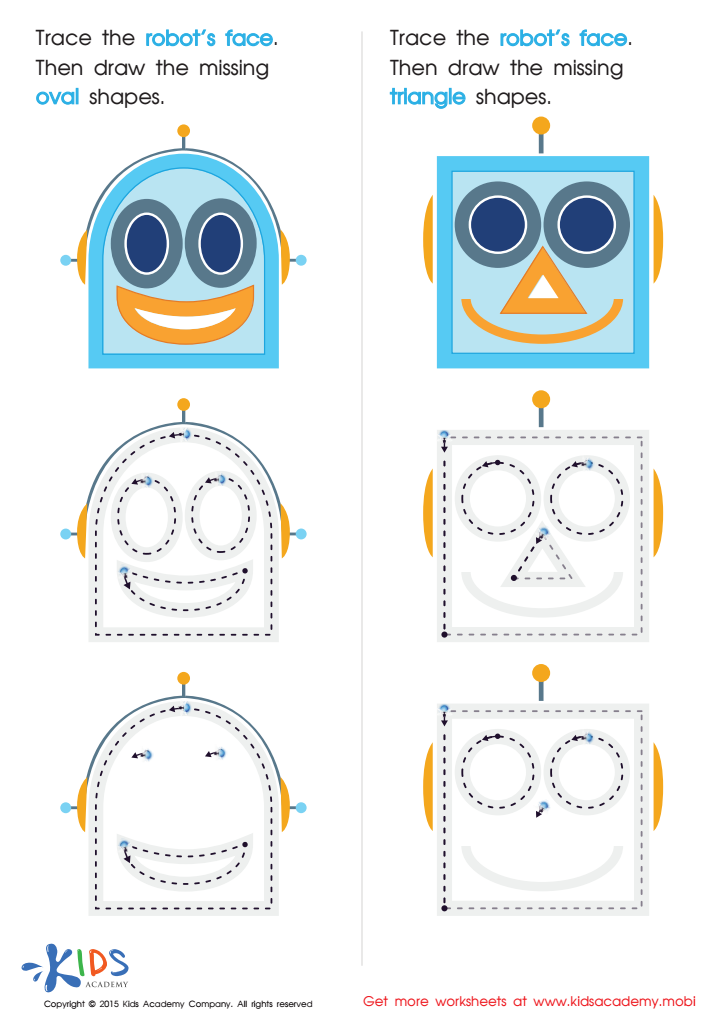

Drawing Ovals And Triangles with Fun Printable
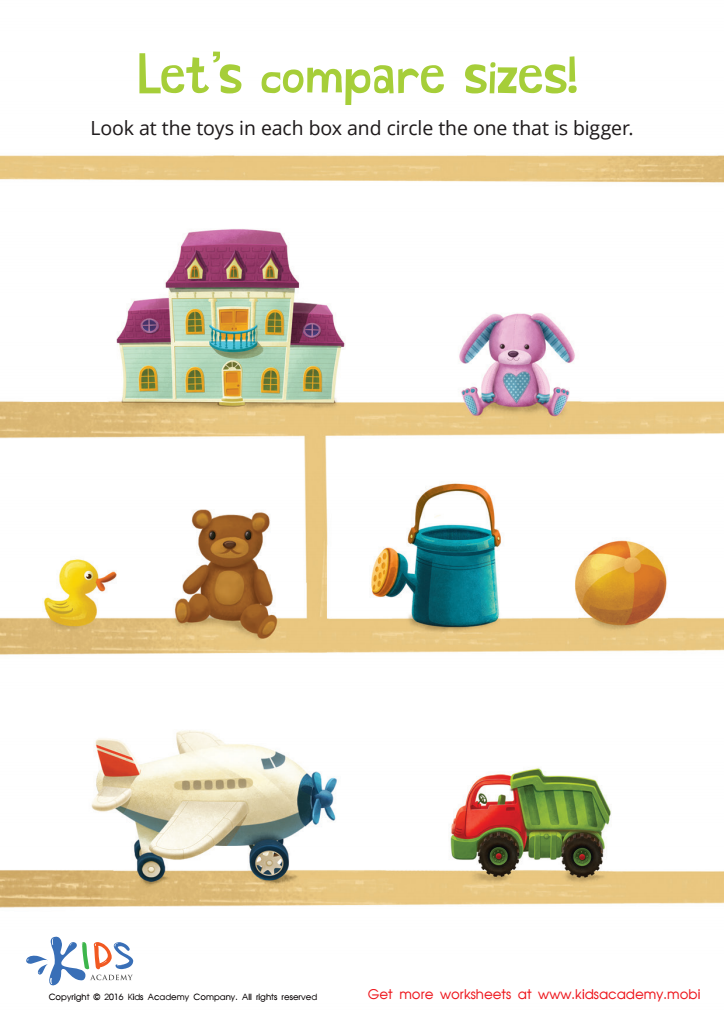

Classifying by Size Sorting Worksheet
Understanding basic geometry is crucial for kindergarten students, as it lays the foundation for spatial reasoning and problem-solving skills that are vital for later mathematical comprehension. Parents and teachers should care about this early exposure because geometry helps children learn to recognize shapes, understand their properties, and grasp spatial relationships. By engaging with basic geometric concepts, children can develop critical thinking skills and learn to categorize objects, which contributes to their cognitive development.
Moreover, geometry in kindergarten aids in fostering visual-spatial awareness. This ability is essential not only in mathematics but also in various fields such as science, art, and engineering. Early instruction in geometry encourages children to explore and manipulate shapes, allowing them to enhance their motor skills through activities like drawing, building, and crafting.
Integral to mathematical literacy, geometry also connects to everyday experiences—recognizing shapes in the environment boosts observation skills and language development as children learn to describe what they see. Lastly, a solid foundation in geometry can prevent future learning gaps, setting children up for success as they encounter more complex mathematical concepts in later grades. Overall, emphasizing geometry in early education enriches a child's learning journey and supports holistic development.
 Assign to My Students
Assign to My Students
